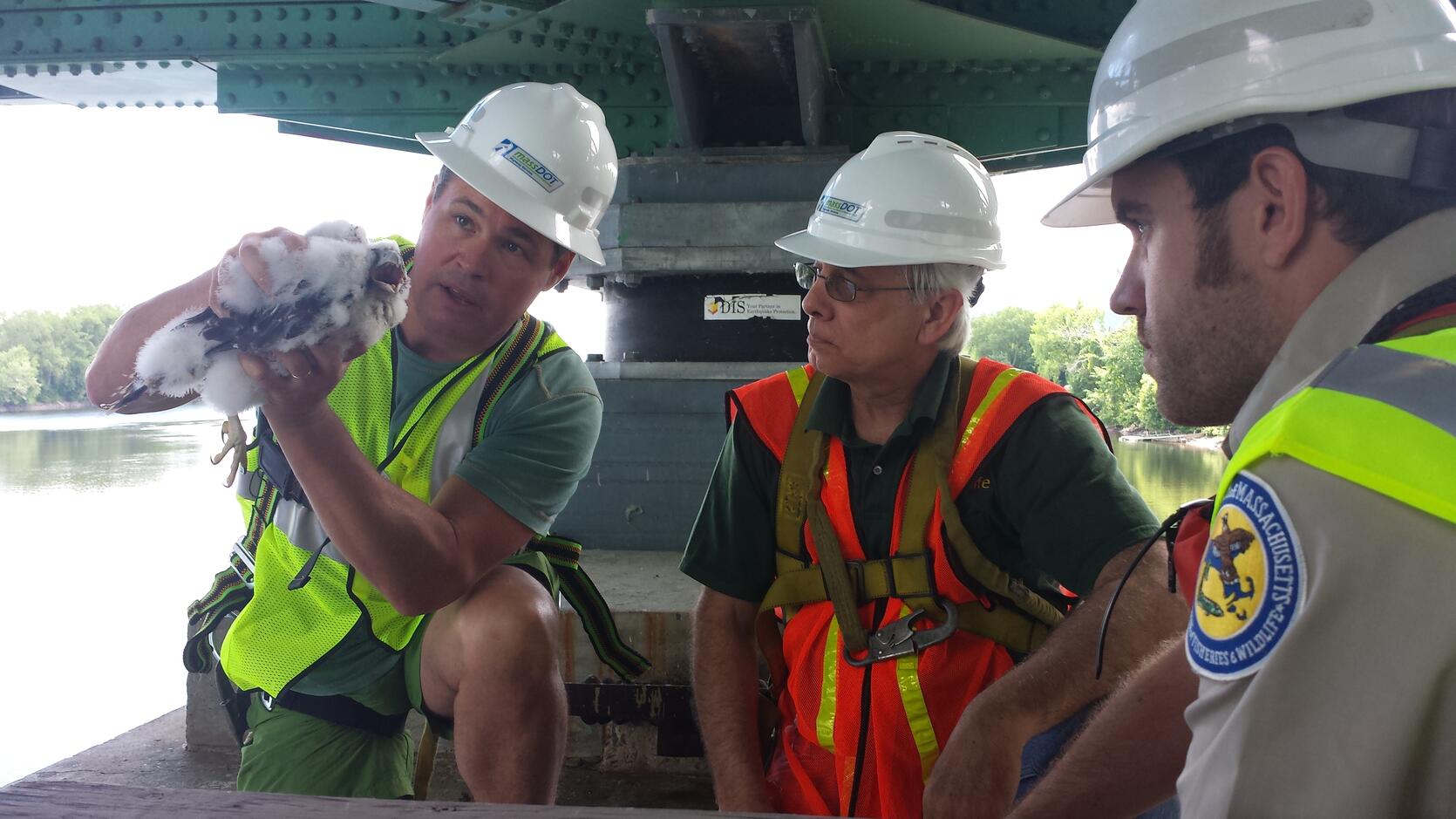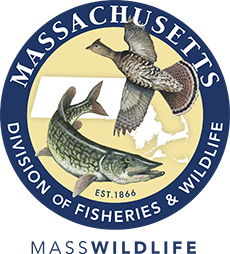- Division of Fisheries and Wildlife
- MassWildlife's Natural Heritage & Endangered Species Program
Media Contact
Media Contact, MassWildlife

You’re driving home from work, crossing one of the many bridges in Massachusetts. Perhaps you’re on the Tobin Bridge, driving north from Boston on Route 1. Or maybe you’re crossing the Connecticut River between Chicopee and West Springfield on the MassPike. You’re thinking about dinner as you wait in traffic when—PLOP!—something white and black falls onto your windshield.
Bird droppings are two parts combined together. The dark mass is the actual fecal portion (the poop). The white mess is uric acid—a bird’s version of urine. This paste-like substance is so acidic and corrosive, that it can damage your car’s paint job. And you guessed it, groups of birds all going to the bathroom in the same place can make man-made structures like bridges deteriorate faster.
Let’s go back to you in the car. You lean forward to look up and see a pigeon flying away, lighter now that it left that mess on your windshield. You sigh. You may even curse. You try to remember where the nearest car wash is until you see a larger shape suddenly swoop in from higher above, catching the pigeon.
Pigeons are quick on changing directions while flying between buildings in the city, but peregrine falcons take their prey at high speeds, reaching over 240 miles per hour in a high-elevation dive. These fast-paced dives give peregrines an advantage over the quick-maneuvering pigeons. When peregrine falcons were reintroduced to Massachusetts in the 1980s, they took to nesting on bridges and building ledges over more traditional nesting areas on cliff faces. These new areas presented peregrines with the opportunity to prey upon species like blue jays, European starlings, and pigeons.
MassWildlife's Natural Heritage and Endangered Species Program—along with partners like MassDOT—is building, installing, and monitoring nest boxes for peregrine falcons throughout Massachusetts on man-made structures like bridges. These nest boxes provide shelter in otherwise precarious areas—places where our biologists are required to wear harnesses and use climbing ropes to access the nests. It just so happens that these areas are also where pigeons are prolific. Coincidence? We think not.
So, think of peregrine falcons when you’re filing your state income taxes. Because of their disappearance from the state in the 1950s, these birds are currently listed as threatened under the Massachusetts Endangered Species Act. This means that money you donate through Line 33A for Endangered Wildlife Conservation on your taxes goes to helping their numbers recover. Each nest box costs roughly $200 in materials. Giving even a portion of this amount means more nest boxes for peregrines in the future and less pigeon poop eating away at your car paint and the bridges you drive on.
Money voluntarily contributed through Line 33A for Endangered Wildlife Conservation goes directly into a fund that can only be used for conservation work in Massachusetts. Funds donated through this income tax check-off line are used for conservation work with peregrine falcons and over 400 other rare species protected by the Massachusetts Endangered Species Act.

